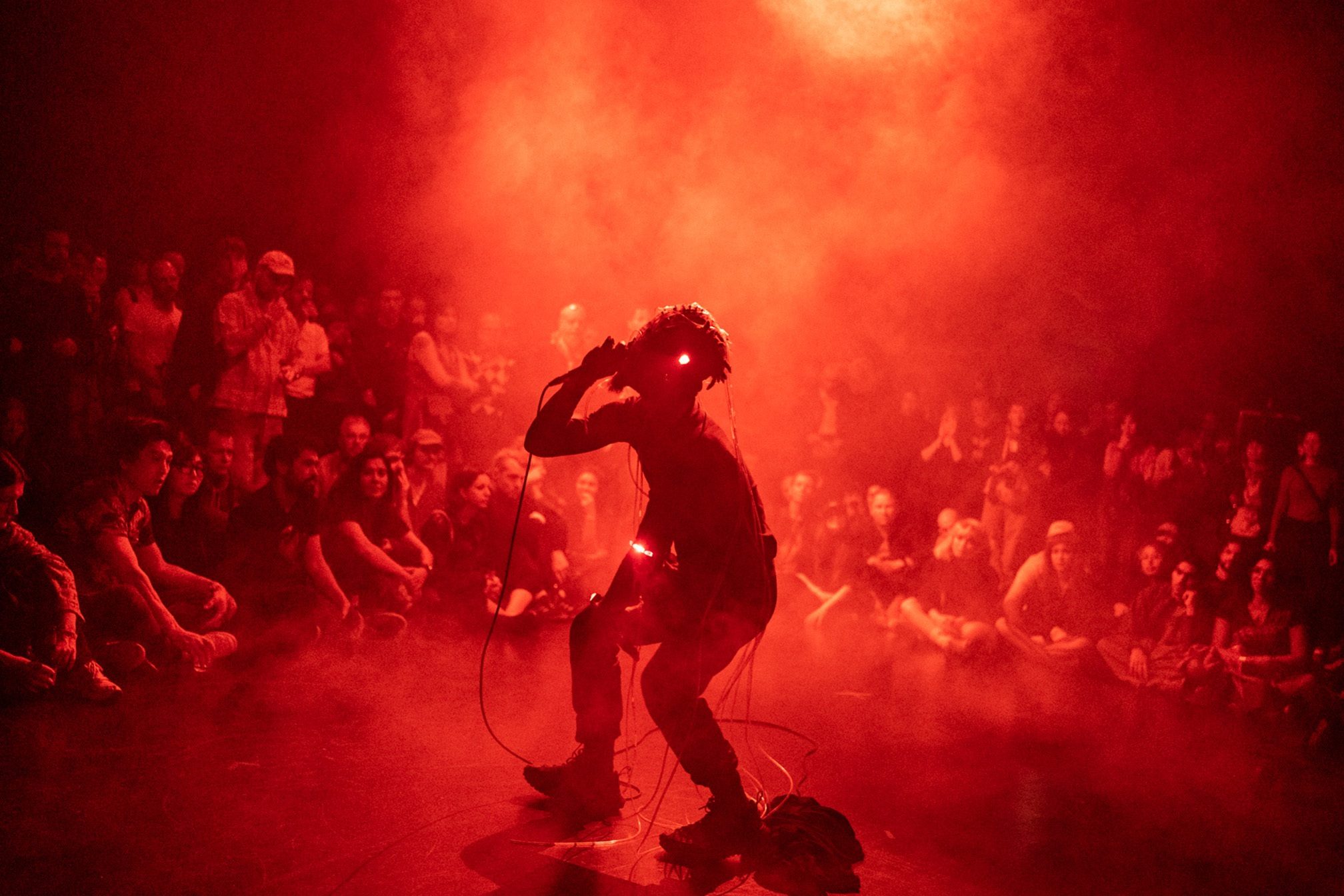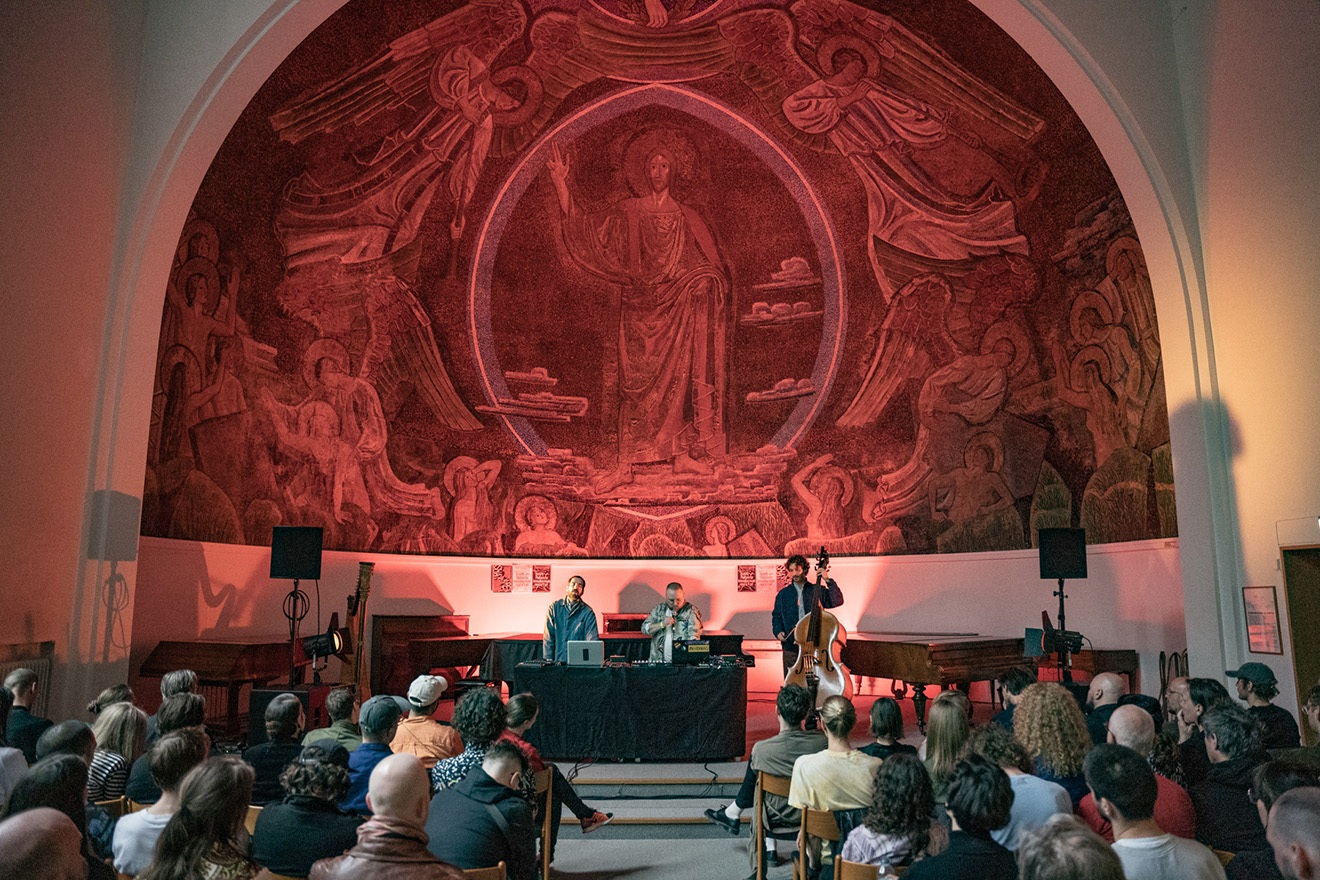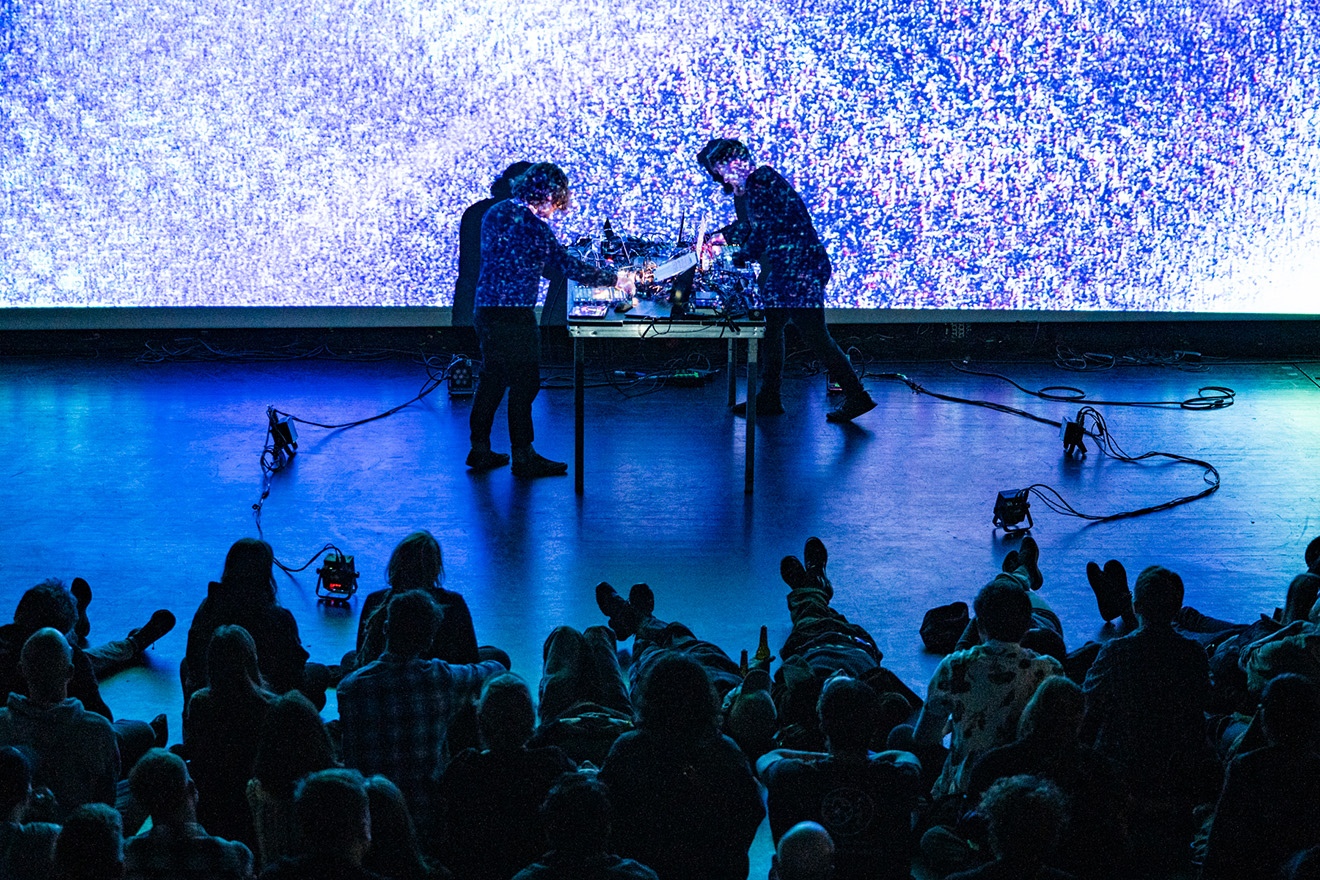 Features
Features
Intonal, Sweden’s most future-thinking festival, is an experimental haven
We headed to Malmö to check out Intonal, a nine-year-strong experimental music festival where eclecticism is no mean feat
Politically speaking, Sweden is fast approaching a surge of its nationalist right-wing – the threat of which could wipe out copious cultural institutions and important music venues across the country in an effort to reclaim Sweden’s traditional roots. One of hundreds, if not thousands, currently facing this uncertainty is Intonal, Sweden’s annual experimental festival and largest of its ilk, which could be axed if these right-leaning parties make moves into power.
“Like many other countries in Europe, the right-wing is gaining a lot of political power here,” says Ulf Eriksson, Intonal’s founder. “When we had our last election, the Sweden Democrats were the second largest party and it's growing every year. Of course, they don’t appreciate what we do here. They want to cut funds for culture costs, and they also want to direct funding towards lifting and highlighting Swedish traditional roots,” he explains. “It's happening now and I really don't know what to do about it. We just have to continue.”
Read this next: Unlicensed raves to be criminalised in Italy in new far-right government "crackdown"
Intonal has been here - in the heart of Malmö - for more than nine years, and until now, hasn’t faced the imminent threat of closure. First set up as a collaboration between Berlin experimental festival CTM and Kraków’s Unsound, Intonal came to fruition with the help of the government initially – a small grant allowed the international collaboration to happen, and so birthed Intonal in April of 2015. Now an annual event, Intonal is best summarised as Scandinavia's most cross-the-board experimental festival, with a well-padded line-up promising a range of acts across five days every spring.

This year, as every year, Intonal welcomed several thousand visitors to Malmö, Sweden’s third largest city just a short ride across the bridge from Denmark’s capital. Typically a university town year through, Intonal is the one exception to welcome a steady stream of international visitors and internal tourists in Malmö, and happens to fall on the same weekend where Walpurgis celebrations take place, and teens drink for the first time.
Intonal takes place across multiple venues in the city including its staple home of Inkonst, an independent music and arts venue where you can catch the likes of hardware fanatics Inkasso, Japanese electronic improviser Phew, and UK selector k means across the venue’s three rooms.
On Intonal’s opening day, use was made of another space a-typical of your average electronic festival venue. St. John's Church became the temporary home for a small batch of musicians throughout the day, including Italy-born drummer and Nicolas Jaar collaborator Valentina Magaletti who performed using a spread of field recordings, drums, and xylophone as the evening sun peeped through the stained glass windows of the church. Reverberating sound softened from corner to corner of the church’s enormous ceilings as candles flickered and flared, almost in sync with Magaletti’s hypnotic drum work.
Read this next: Jookoo Collective are the experimental club crew diversifying Barcelona's dancefloors
Over at Inknonst’s Black Box - a room within the venue that typically doubles as a performance space throughout the year - larger-scale productions faze in and out. Multifaceted producer, performer, and visual artist SUUTOO gave a disorientating immersive set inside the blacked-out walls – a thunderous experimental soundtrack and dizzying lights almost made the performer appear in stop-motion as they danced manically, the rest of the room absolutely still.
By Friday night, NTS host Coby Sey took the headline slot of Inkonst’s Big Stage fusing sax-led tracks with rap and jazz, looking rather at home on stage in Malmö as he drew in the biggest crowd of the evening. Downstairs in the Black Box, Bendik Giske played the saxophone alone - a hauntingly beautiful one-man show that remained a talking point throughout the weekend.


Glasgow-born, Copenhagen-based DJ and producer Solid Blake was also amongst the spread of international acts over the weekend, performing solo for the first time at Intonal. “I’ve always loved playing at Inkonst,” she tells Mixmag after her performance. “It’s a really special venue that works hard to represent and showcase work that otherwise might not have a stage. Intonal feels like the perfect annual celebration of those values,” she says. “It’s always comforting to know you’re in an environment where you can get away with playing what you want to. I didn’t try especially hard to play more experimental music, but I definitely enjoyed the freedom to do so.”
It’s not all about international talent, either. Dip Shim, a musician local to Malmö who runs the much beloved Bolero Records store and also helps out at Inkonst over the weekend, is instrumental to the festival’s execution. When we caught up with him at his nearby music studio ahead of his hardware-heavy, hybrid vinyl set at Inkonst, he explains that because of Intonal, he’s able to pay the bills at his record store with the number of people passing through.
Read this next: Dance 'til the police come: How oppressive policing has eroded rave culture
“People come from all over the world during Intonal, it’s great for the city and for venues like Inkonst,” he tells us. “There’s a lot of community here in Malmö, a lot of illegal raves. There’s a contrast between the really rich part of the city and old industrial Malmö where illegal raves take place during the summer. But the policing is strict here, the drug policies in Sweden are super hard where consuming drugs - not just having them with you - is against the law,” he adds, explaining that, with such draconian policies that take a hard stance on drugs and alcohol, clubs such as Inkonst need to abide by strict policing in order to remain open. “At Inkonst, we try to create a safe space and protect the club,” he says.

Elsewhere, Intonal offered some respite from smoked-out club rooms with temporary fixtures at other venues, including Malmö’s KHM Gallery where an audiovisual exhibition ran throughout the event, and Whose Museum, where Malmö’s Retreat Radio teamed up with Brussels’ Kiosk Radio showcasing local and international artists. Even a former castle was in use hosting a string of acts including Foss, Hallbäck, and Pestana, who performed beneath a glorious apostolic backdrop, religious paintings looming over, effortlessly merging distorted live hardware and synths with the celestial sounds of the cello.
Read this next: Expressing madness with sound: Rākhis' experimental music is fuelled by raw emotion
Back at Inkonst, Saturday night at Intonal played out like a dream - Jamaica’s Gavsborg headed up the Big Stage running through dub rhythms, house, R&B and ska. Later, Germany’s Fiedel turned up the temperature in the Black Box with his eclectic fusion of techno and electro, accompanied by the theatrical dance moves of Frédéric Gies, a very scantily clad performer in the centre of the room who everyone, without thinking, gravitated toward.
Because of its wide-ranging scope of artists and styles, Intonal doesn’t feel at all pretentious - its no-frills approach to experimental music is a welcomed one. But it would be a mighty shame to see Intonal removed from the festival circuit ahead of its tenth birthday, and there’s no doubt that the thousands of people who flock to Malmö to experience it each year would agree. “The cultural politics of Sweden are changing,” Ulf tells Mixmag. When asked about the next steps for Intonal? “Survival.”
Gemma Ross is Mixmag's Assistant Editor, follow her on Twitter


